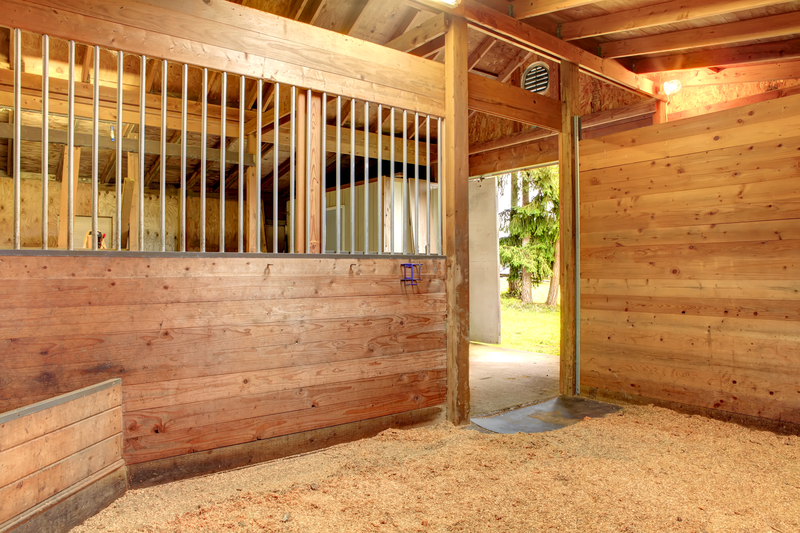Tips for Eco Conscious Stable Management

There is an immediate connection between the health of our ecosystem and the health of our horses according to The Green Guide for Horse Owners and Riders. Making small changes in daily animal keeping practices can have positive impacts on the environment—and as animal and nature lovers it’s hard not to care about preserving our surroundings. Below are some great tips for eco-friendly stable management practices:
- Manage Manure One horse can produce 45 pounds of manure daily! Now add soiled shavings into the mix and that can increase the total to 60-70lbs of waste per horse per day! To reduce waste try to use a bedding product that allows manure and soiled material to be sifted from your stalls. Composting and spreading manure is a great way to use your manure. (Note: less shavings in the manure pile will allow it to compost faster) While some farms don’t have the option they can look into having someone else pick up and use their manure. Finally, always take care to prevent contamination of ground water by locating waste piles away from water sources. Manure piles should be covered and contained in order to prevent bugs and smell.
- Preserve Pastures – Poorly managed pastures effect the environment. If you have multiple turnout areas, give one a rest period so vegetation has a chance to grow back. If you only have one turnout area, consider blocking off one section of your pasture at a time. This will prevent your entire turnout from being grazed down to dirt. Overgrazed pastures are also more prone to erosion, which can wash dirt and manure into your local water supply. Consider adding a sacrifice lot to your farm and using it when necessary.
- Become Energy Efficient – By converting to fluorescent light bulbs, and using automatic timers you will save a lot of energy. Timers can also be added to control fans and other utilities as well. Think about adding solar panels or installing solar-powered lights in indoor/outdoor arenas, or around the barn in order to reduce overall energy consumption. Many states provide incentives and exemptions for switching to solar so make sure to check with local resources.
- Conserve Water – Installing automatic waterers helps to conserve water and keeps water cleaner/fresher for animals. Some systems are powered by geothermic heat. This technology keeps water cool in the summer months, and above freezing in the winter. Bonus- No electricity is required. Even in areas where drought is not a main concern make efforts to collect rain water, put timers on your sprinklers, and always fix leaky pipes, hoses, sprinklers and faucets.
- Reduce, Reuse & Recycle – Make space in the barn office or tack room for recycling bins. Repair old tack and equipment or sell/donate unwanted items to those who may need it and consider taking some old items lying around and repurposing them—maybe old water troughs would make a nice container gardens!?
By adopting more energy efficient practices, creating less waste and consciously managing our stables we can reduce our environmental impact, thus our overall footprint. These practices will help create an optimal environment for healthier animals ….and not to mention a healthier planet!



